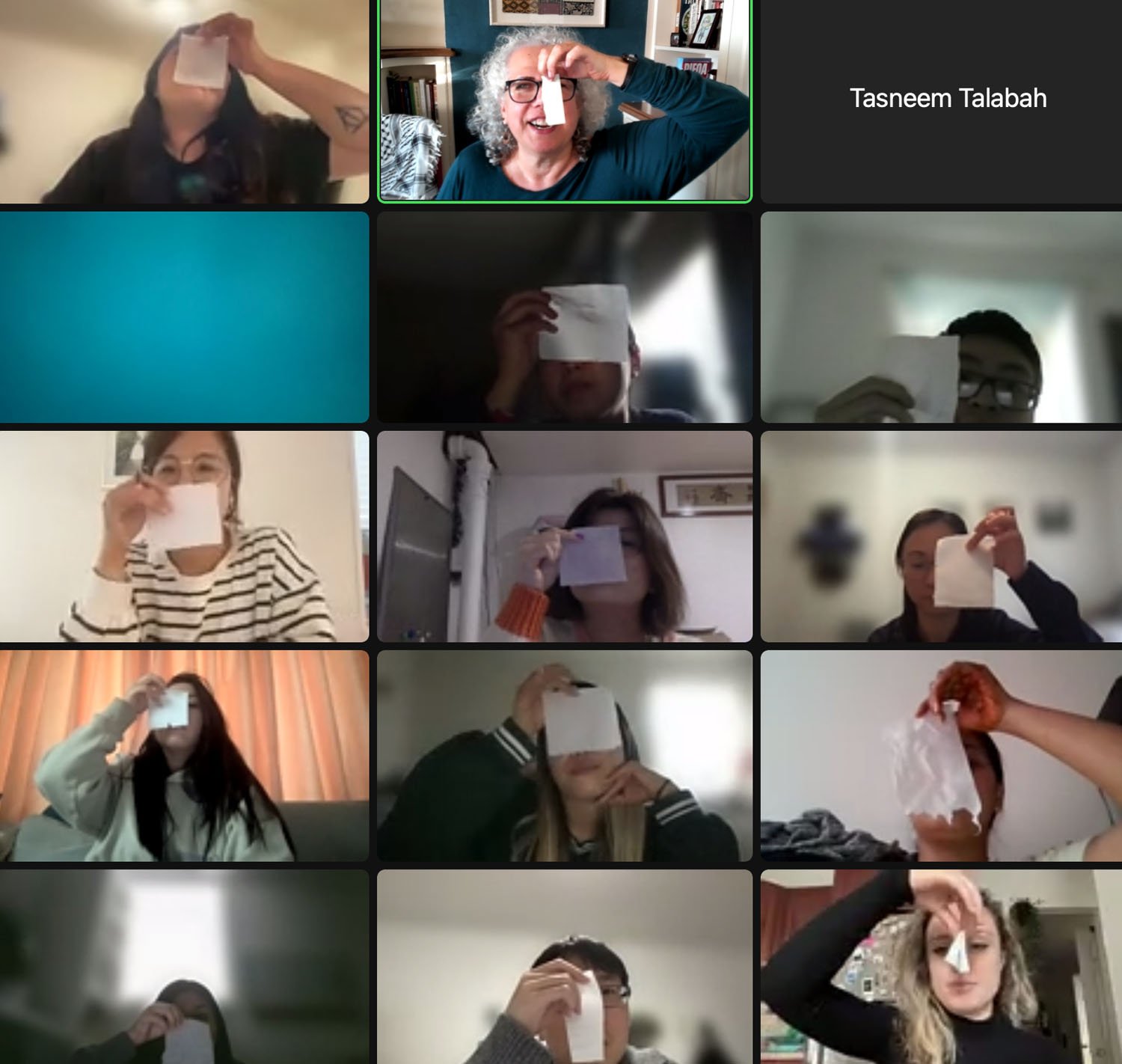
Linguistics
I went into the field of linguistics because I wanted to understand the nature of language, and how it is used by individuals and groups for expressive and social purposes. This curiosity led me to Columbia School linguistics, an innovative approach that has been the foundation of much of my scholarly work and service. Named for a theoretical framework that was established at Columbia University in the 1960s, Columbia School (CS) linguistics has been described as “radically functionalist” (Nichols 1984); language is seen as a symbolic tool whose structure is shaped both by its communicative function and by the characteristics of its human users. CS distinguishes sharply between the semantic contributions of forms and the communications to which they contribute, and rejects the categories of traditional grammar that were bequeathed to us from the ancient Greeks in the pre-scientific era.
Photo: Linguistics students learning about pronunciation
Sample Publications
This invited article describes my analysis of English self pronouns, and shows that the category ‘reflexive’ is not helpful to understanding the nature or distribution of these forms.
Columbia School Linguistics in the 21st Century
The introduction that I wrote for a recent Columbia School anthology (Stern, Otheguy, Reid & Sackler, 2019) is an ambitious overview that compares the CS perspective with other functionalist approaches, and is intended to serve as a primer on CS linguistics for graduate students and other linguists.
Stern, Nancy. 2019. Grammar as Expressive Choice: Ourself and Themself. Lingua 226, 35-52.
In this paper, I describe the forms ourself and themself not as non-standard variants of ourselves and themselves, but rather, as reflecting expressive choices that speakers make to facilitate communication. Speakers’ creativity in the use of these and similar forms (even myselves and herselves) reveals the nature of the linguistic system as a set of signals and meanings deployed by language users to meet their communicative goals
Co-authored with Ricardo Otheguy, this paper argues that there is no strictly linguistic justification for the use of the term ‘Spanglish’, as language practices that are given this label are the same as those that characterize popular varieties of other languages, including Spanish in both Latin America and Spain.
Columbia School Linguistic Society
I am currently serving as the president of the Columbia School Linguistic Society, whose purpose is to advance, promote and disseminate linguistic research within the framework of the theoretical lines first established in the teachings and writings of William Diver. Founded in 1998, the Society sponsors activities such as seminars and conferences, and offers fellowships to students and other scholars for linguistic research in the Columbia School framework

